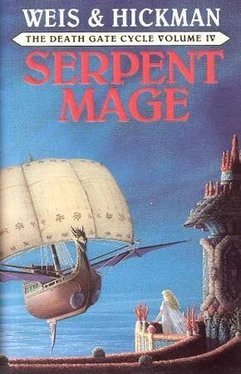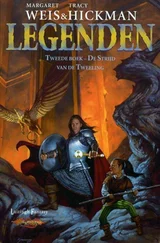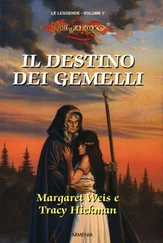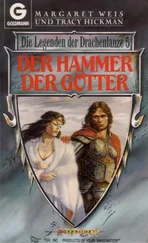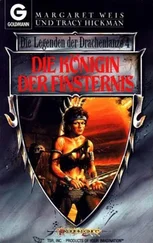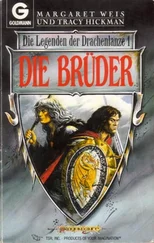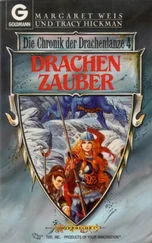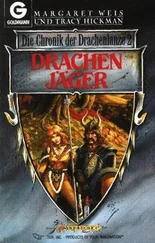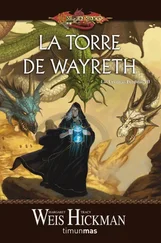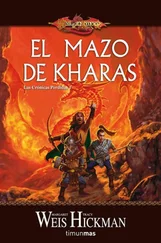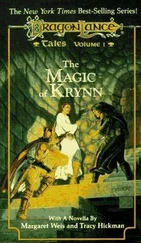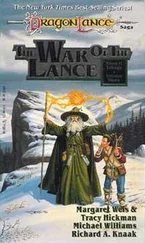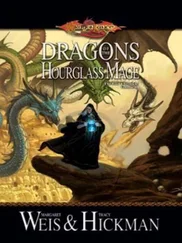Margaret Weis - Serpent Mage
Здесь есть возможность читать онлайн «Margaret Weis - Serpent Mage» весь текст электронной книги совершенно бесплатно (целиком полную версию без сокращений). В некоторых случаях можно слушать аудио, скачать через торрент в формате fb2 и присутствует краткое содержание. Жанр: Фэнтези, на английском языке. Описание произведения, (предисловие) а так же отзывы посетителей доступны на портале библиотеки ЛибКат.
- Название:Serpent Mage
- Автор:
- Жанр:
- Год:неизвестен
- ISBN:нет данных
- Рейтинг книги:5 / 5. Голосов: 1
-
Избранное:Добавить в избранное
- Отзывы:
-
Ваша оценка:
- 100
- 1
- 2
- 3
- 4
- 5
Serpent Mage: краткое содержание, описание и аннотация
Предлагаем к чтению аннотацию, описание, краткое содержание или предисловие (зависит от того, что написал сам автор книги «Serpent Mage»). Если вы не нашли необходимую информацию о книге — напишите в комментариях, мы постараемся отыскать её.
Serpent Mage — читать онлайн бесплатно полную книгу (весь текст) целиком
Ниже представлен текст книги, разбитый по страницам. Система сохранения места последней прочитанной страницы, позволяет с удобством читать онлайн бесплатно книгу «Serpent Mage», без необходимости каждый раз заново искать на чём Вы остановились. Поставьте закладку, и сможете в любой момент перейти на страницу, на которой закончили чтение.
Интервал:
Закладка:
Boats capsized, hurling their crews into the water. Some were simply swallowed up, the dwarves on board disappearing in the oil-covered foam. The army stood fast against the serpents. Hartmut was bravest of all of them, advancing into the water, his ax raised in challenge. The serpents ignored them, contented themselves with smashing all the boats in the harbor—except one, the royal ship, the one we used to sail back and forth to Phondra and Elmas. The serpent paused, looked at us and at the havoc its creatures had wrecked. Its eyes had changed from red to green, their gaze was flat and unblinking. It turned its head from side to side in a slow, sweeping gesture, and whenever its dread gaze touched any of us, we shrank beneath it. When it spoke, the other serpents behind it ceased their destruction to listen. The serpent spoke perfect dwarven.
“This message is for you and your allies, the humans and the elves. We are the new masters of the sea. You will sail it only with our permission and our permission can be obtained only by paying a price. What that price is to be, you will be told later. What you have seen today is a sample of our power, of what will happen to you if you do not pay. Heed well our warning!” The serpent dove back down in the water and vanished. The others followed, swimming rapidly through the bits and pieces of wood floating on the slimy surface. We stood looking at the ruins of the sun-chasers. I remember the silence that fell over the people. No one even yet wept for the dead. When all were certain that the serpents were finally gone, we began the grim task of retrieving the bodies of those who had died—all of them, it turned out, appeared to have been poisoned. Once pure and safe to drink, the seawater was now coated with a foul oil slick that killed anything unlucky enough to swallow it.
And that was how all this began. There is more, much more, to my story, but I hear Alake coming through the ship, looking for me, calling to me that it’s time to eat. Humans! They think food is the cure-all for every problem. I like my dinner as well as the next dwarf, but, just now, I don’t seem to have much appetite.
I must end for the moment.
4
Alake keeps insisting that we eat—to keep up our strength, she says. What she thinks we’re going to need our strength for is beyond me. Battle these dragon-snakes as I suppose we should call them now? Three of us? I said as much to her; curse the dwarves for our blunt tongues.
Alake was hurt, I could tell, though she was kind enough to say nothing to me in rebuke. Devon managed to cover our awkward moment, and he even made us laugh, though that put us close to tears. Then, of course, we all had to eat something, to please Alake. None of us ate very much, however, and all of us—even Alake—were glad, I think, when the meal ended. She left, going back to her magic. Devon went back to doing what he is always doing—dreaming of Sabia. And I will go on with my story.
Once the bodies of the dead had been recovered and were spread out along the shoreline, their families, having identified them, were led away by friends to be comforted. At least twenty-five people had been killed. I saw the mortician dashing about aimlessly, a distracted look on his face. Never before had he had this many bodies to prepare for their final rest in the burial vaults in the mountain.
My father spoke to him, finally calmed him down. A detail of soldiers was sent to assist, Hartmut among them. It was a heavy, sorrowful task and my heart went out to him.
I was doing what I could to help, which wasn’t much; I was too dazed by the sudden upheaval in my orderly life. Eventually I just sat on the platform and stared out to sea. The sun-chasers that had been left anywhere near intact floated belly-up in the water. There weren’t many. They looked sad and forlorn, like dead fish. I still held the blue ribbon and lock of hair in my hand. I tossed it in the water, watched it drift away on the oil-coated surface.
My father and mother found me there. My mother put her arm around me, hugged me close. We stood long moments without speaking.
My father heaved a sigh. “We must take news of this to our friends.”
“But how can we sink between the worlds? [14] Dwarves use the more appropriate term sinking rather than sailing to describe travel in a submersible. Humans and elves prefer the ancient terminology.
What if those terrible creatures attack us?” my mother asked, frightened.
“They won’t,” my father said heavily, his gaze on the one ship the serpents had left unharmed. “Do you remember what they said? ‘Tell your allies.’” The next day, we sank down toward Elmas.
The elven royal city of Elmasia is a place of beauty and enchantment. Its palace, known as the Grotto, is built of pink and white filigree coral and stands on the banks of the seamoon’s many freshwater lakes. The coral is alive and still growing. The elves would as soon think of killing themselves as they would of killing the coral, and so the shape of the Grotto alters on a continuing basis.
Humans and dwarves would consider this a nuisance. The elves, however, find it highly diverting and entertaining. If one room in the Grotto is closed off by the rapidly growing coral, the elves simply pack up their things and move to another that is certain to have been created in the interim. Finding one’s way through the palace is an interesting experience. Corridors that lead one place one day will take a person somewhere completely different the next. Because every room in the Grotto is certain to be one of surpassing beauty—the white coral glistens with an opalescent radiance, pink coral shines warmly—it doesn’t really matter to most elves where they are. Some who come to the palace on business with the king may wander the Grotto for days before making the slightest attempt to find His Majesty.
No business is ever pressing in the elven community. The words hurry, haste, and urgent were not in the elven vocabulary before they began dealing with humans. We dwarves never dealt with either until only recently in our history. Such diversities in human and elven natures once led to serious clashes among the two races. The Elmas, though generally easygoing, can be pushed only so far before they push back. But, after several destructive wars, both races came to see that they could gain more by working together than apart. The human Phondrans are a charming, if energetic, people. They soon learned how to manage the elves, and now they wheedle and flatter them into doing what they, the humans, want. This noted human charm worked even on the dour dwarves. Eventually, we, too, were won over by them.
The three races have lived and worked together, each on their own separate seamoon, in peaceful harmony for many generations. I have no doubt that we would have continued to do so for many generations more, had not the seasun—the source of warmth, light, and life for the seamoons—begun to leave us.
It was human wizards, who love to probe and prod and try to find out the why and the wherefore, who discovered that the seasun was altering its course and starting to drift away. This discovery led the humans into a perfect flurry of activity, quite marvelous to behold. They took measurements and made calculations, they sent out dolphins to scout for them, and questioned the dolphins for cycles on end, trying to find out what they knew of the history of the seasun. [15] Humans were the first to communicate with the dolphins and learn their language. Elves think dolphins amusing gossips, entertaining conversationalists, fun to have at parties. Dwarves, who learned how to talk to the dolphins from the humans, use dolphins mainly as a source of information on navigation. Dwarves—being naturally suspicious of anyone or anything that is not a dwarf-do not trust the dolphins, however.
Интервал:
Закладка:
Похожие книги на «Serpent Mage»
Представляем Вашему вниманию похожие книги на «Serpent Mage» списком для выбора. Мы отобрали схожую по названию и смыслу литературу в надежде предоставить читателям больше вариантов отыскать новые, интересные, ещё непрочитанные произведения.
Обсуждение, отзывы о книге «Serpent Mage» и просто собственные мнения читателей. Оставьте ваши комментарии, напишите, что Вы думаете о произведении, его смысле или главных героях. Укажите что конкретно понравилось, а что нет, и почему Вы так считаете.
